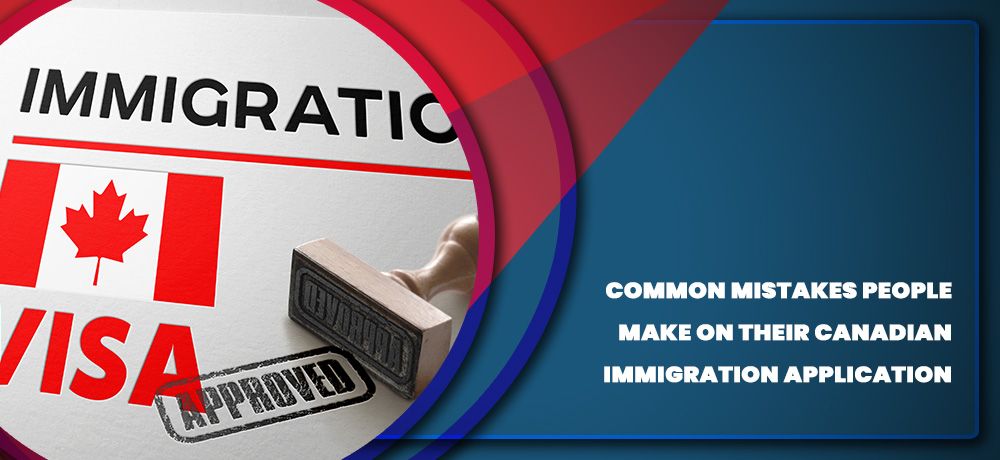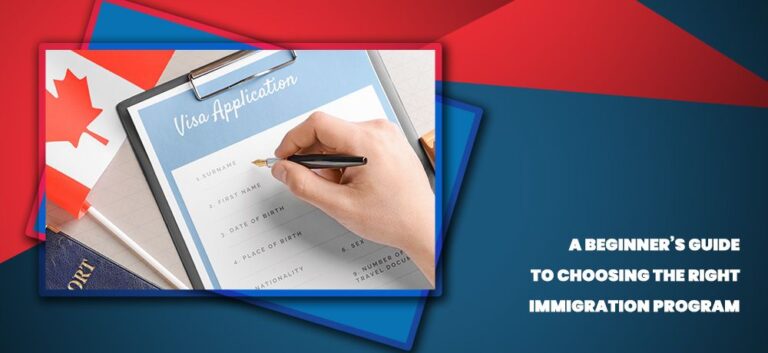Common Mistakes People Make On Their Canadian Immigration Application
Migrating to Canada has increased in recent years, and the IRCC (Immigration, Refugees, and Citizenship Canada) is embracing it. However, with more and more candidates applying every year, there are delays in processing due to the current situation. Therefore as a newcomer, it becomes more important than ever to prepare and submit the application to give yourself the best chance at approval.
While filing your form with the help of a good immigration expert can undoubtedly help you. Unfortunately, after analyzing dozens of applications, as a licensed immigration consultant at Hopeland Immigration, I have come across many applicants being inconsistent with their information, ultimately leading to long-lasting delays or even rejection.
So to help you avoid basic blunders when filling up your application, here’s a list of common mistakes people make on their Canadian immigration application.
1. Not providing all the required documents
One of the most challenging parts of filing any immigration application is determining what you need to present, mainly because forgetting certain documents can lead to a delay in processing or even a rejection. I have seen far too many applications getting declined due to a lack of documentation, so make sure you provide what’s needed. You may also want to consider having an expert review your application before submitting it so that there are no overlaps or unexplained gaps.
2. Missing supplemental forms and supporting documents
Based on who you are, the country you are coming from, and the program’s admission requirements that you’re signing up for, you may be required to produce verifying documents with your transcripts as part of your application. It would help if you gave a Canada Revenue Agency (CRA) Notice of Assessment of at least the past two years. If you’re a student requesting Canada PR and don’t file taxes, you should be able to provide proof of official transcripts from your institution for the last two years (or more). It can also be helpful to review the Canada Immigration supplemental forms and supporting documents eligibility requirements to ensure you meet each one.
3. Not providing a letter of explanation
Along with all the documents required, you should include a letter of explanation (LOE) in your application. The LOE will look slightly different based on the type of application (Study permit, PR, etc.); besides, it will help the visa officer get to know your profile and goals or intentions. For example, something odd in your bank statement, reasons you had any prior visa application denied, why you think the course you picked will be necessary for your career if you’re applying for a study visa, etc. When you’re clear with your immigration goal, it will show that you are dedicated to and understand the immigration process.
4. Missing the deadlines
IRCC has a vast number of applications to process and is on a tight deadline. So, you need to take every step within the timeline and deadlines specified. It can take a couple of months from the time you submit your first application till the time you get your final COPR mail, which is why you must note down your immigration process and have an idea about the timeline to plan well in advance. Set reminders for yourself a week in advance to ensure no deadline is missed. Another vital step is to keep a record of renewal dates. If medicals have to be renewed or any immigration papers require restarting, ensure they too are done quickly.
5. Not meeting the eligibility of an immigration program
Did you know that there are more than sixty Canadian immigration programs? Did you also know that you can modify your status through your stay in Canada? While there are several ways to apply for a visa, choosing the wrong program can hinder your visa approval. Everyone’s situation is different, and there is no absolute best choice. A designated immigration expert who knows different types of immigration or visa programs will help you choose the option that satisfies your particular situation.
6. Committing misrepresentation accidentally or intentionally
Misrepresentation is a severe immigration offense. It can lead to your application being rejected, and the Government can prohibit you from applying for Canadian immigration for several years. Be open about the details of your application, for example, your job history and any medical or criminality matters that you, or anyone accompanying you on your application, have had. Not all medical problems prevent Canadian immigration, and the same is valid for a past criminal record. Suppose you aren’t sure what is and isn’t worth reflecting on. In that case, you can consult an immigration attorney or list anything of concern and leave it to the consideration of the visa officer.
Avoiding the mistakes mentioned above will surely smoothen the process of immigrating to Canada. With millions of forms getting rejected for tiny errors, ensure your application is sent the right way with all the details and documents in place. Reach out to Hopeland Immigration for an immigration consultation and make your move to Canada a reality!
As a licensed immigration consultant in Calgary, AB, you can rely on my services to help you navigate your way through the immigration process. I serve clients across Calgary, British Columbia, Saskatchewan, Canada, and Vietnam.



